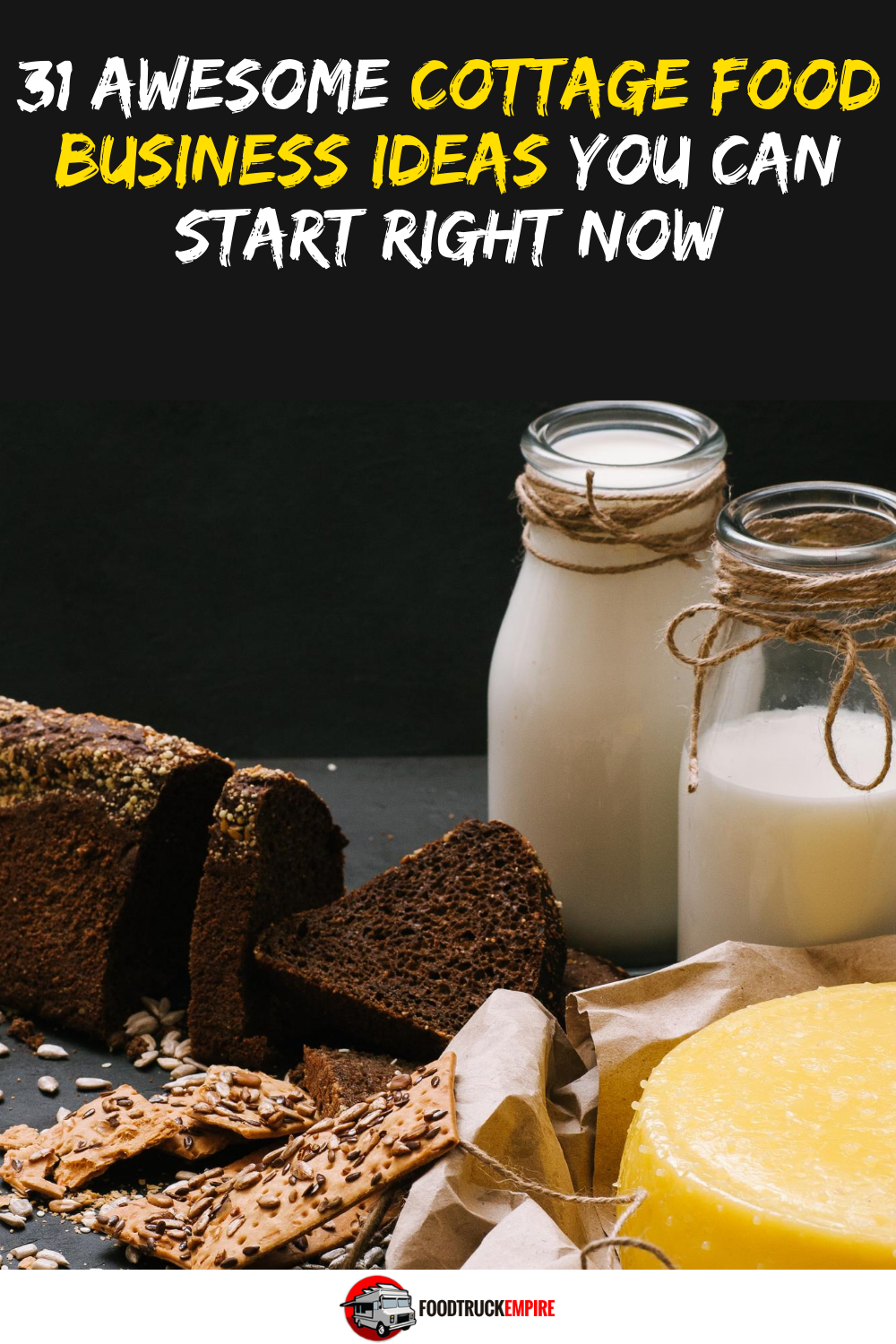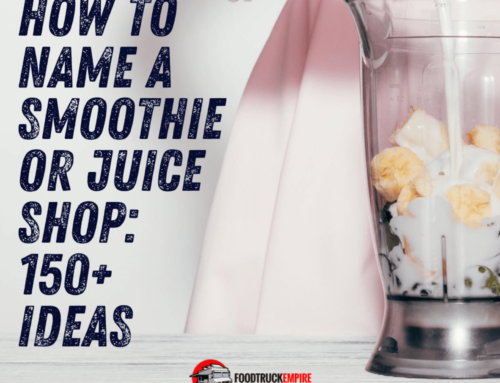When it comes to food, many of us have one rock-solid idea that we’re convinced can turn us into overnight millionaires. Maybe you’ve perfected a habanero apricot buffalo wing sauce. Perhaps you’ve created the ultimate bar snack, after studying street vendor Filipino garlic-roasted peanuts for ten years. Or maybe you’ve started making guacamole with gochujang mayonnaise and a special breed of super-hot chile pepper you’ve created. Whatever your specialty, you’ve gotten used to the demands that you bring a batch of your specialty to the next family dinner, or your rowdy friends demanding your secret recipe.
But the question is: Is it a business? For most of us, that question presents such a risky proposition, that it goes unanswered for our whole lives. Because no matter how amazing your chili recipe is, no matter how many cookoffs you’ve won or compliments you’ve received, dumping hundreds of thousands of dollars into your idea to build a restaurant around it is a tremendously risky idea.
Help For Small Food Businesses
Fortunately, there’s a solution. The emerging and evolving “Cottage Food” acts in many states are making it increasingly possible for small-scale food entrepreneurs to test their concept, without making a huge and potentially risky environment. In many states, cottage food laws allow people just like you to test their concept, by selling independently through farmer’s markets, online, or in partnership with local stores, using food produced right in their own home kitchens, without having to rent or buy commercial prep space.
The savings in terms of time and resources is potentially huge, and cottage food laws can help you figure out if there’s a market for your potential product before you spend much money. Though regulations vary from state to state, the idea is simple: Most shelf stable, unheated or unrefrigerated food (known collectively as non-potentially hazardous food) can be produced and sold, in some cases without limitations placed on the sales venue or volume sold. Depending on your idea, you can launch a successful product without a major up-front investment. And if your idea works? You can justify the expense (or the loan) required to take your business to the next level.
Because there’s no one defining law for cottage food licenses, it’s crucial that you check your state’s laws regarding cottage food production. Some states require special licenses, training courses, inspections, fees, or all of the above. It’s also important to remember that there are revenue limits that cottage food businesses much follow. In any given 12 month time period you will not be able to generate more than $50,000 – $65,000 usually (again find out what the exact revenue number in your area is). Although income is limited under cottage food law, you can always change your business classification to an LLC or sole proprietor if you would like to grow the business further.

Cottage Food Business Idea List
Think the law is too restrictive to allow you to make the products you want to make? Here’s our list of 31 cottage food businesses you can start right away, that operate within the restrictions of the cottage food laws in most states:
Breads, Biscuits, Donuts, and Bagels: Bakeries are generally pretty sound structures for a food business, because the costs of the core ingredients are so low. Think about it: You can buy a 50 pound bag of flour for about a nickel. And what’s a little butter cost? Even the fancy French kind? The margins on these ingredients are incredible. Most cottage food laws allow baked goods, so dream up a few specialty breads or bagels. Maybe something made with little chocolate bits. We like those.
Brownies, Cakes, Cookies, or Pies: These are also covered by most cottage food laws. Check with local specialty grocery stores to see if they’ll accept a few of your creations on consignment, meaning you only get paid if your item sells. Prove yourself with the store’s customers, and you’ll be getting repeat orders in no time. Cakes and pies also present a good opportunity for specialty bakers; if you establish a reputation for yourself as a creator of whimsical custom cakes, you’ll stay busy baking for graduation parties, birthday parties, and even weddings or anniversaries, using nothing more to market your services than word-of-mouth and a good Facebook profile.
Corn or Flour Tortillas: These are covered by many state cottage food laws, are simple to make (either by hand or using a machine), and appeal to our growing cultural fascination with “authentic” Mexican food. Every Mexican restaurant or taco truck in your town will want to tout their homemade tortillas. It’s up to you to make them, and bring the masa to the people.
Candies, including Brittles and Fudge: Most states with cottage laws allow the creation and sale of several different types of homemade candies from the comfort of your own kitchen.* While some states can get fussy about chocolate and candies made with chocolate, many will allow you to produce and package it yourself. Small-scale distribution in specialty markets is a possibility, as is catering corporate events or gift/goodie bags for special functions, like weddings.
*Author’s anecdote: My sister started a successful cottage candy business in her home state of California, with many large-scale corporate clients, using strictly the recipes she found on the backs of jars and packages. The lesson? Don’t overthink it.
Ketchup and Mustard: Ready to take on the big boys at Heinz? You can do it right in your home kitchen, according to cottage laws in many states. When dreaming up your magic formula, try and find a niche not already covered by smaller scale producers. Spicy ketchups are always a good bet, as are fruit-infused concoctions. Ketchups and mustards infused with ethnic flavors like Indian curry or sriracha are also on-trend.
Oils and Vinegars: These are regulated very differently from state-to-state. Some require careful pH monitoring for homemade vinegars, and many prohibit the sale of homemade infusions for oils. If you can find the loophole, these also perform very well in specialty stores.
Pickles: The grandaddy of the cottage food industry, pickles are allowed for sale in many states with cottage food laws. Rather than put another “garlic dill” on the market, dream up the craziest pickled concepts you can imagine, using exotic spices and unexpected ingredients. Remember also that pickle production isn’t limited to cucumbers; green beans, cauliflower, beets, and salads (as in gardinara) can all be pickled for sale, provided you follow proper canning procedure.
Salsa and Hot Sauces: This is the one that many entrepreneurs dream of, when they imagine cottage food businesses. Hot sauces don’t require a ton of preservatives, thanks to their pepper and vinegar content, and it’s easy to adapt at-home recipes to larger-scale quantities. Salsas can be a little trickier, since they’ll need to be kept bright and vibrant after jarring, but cottage food laws in many states allow the creation of these items.
Cereals, Granolas, Trail Mixes, and Dried Fruit: If your state’s cottage food laws will allow it, these are great starting places for an at-home food business. Anyone with a dehydrator can begin producing dried fruit at home, but even better, these products all allow for a certain amount of customization using existing off-the-shelf products. If you create your own trail mix brand using nuts, seeds, and dried fruits from a big distributor, your new company becomes almost a pure marketing and branding effort, since all of the “cooking” is already mostly done for you.
Spices and Seasonings: Again, this can be an opportunity to flex some marketing muscle. Anyone can go to the store and buy coarse salt, paprika, brown sugar, and cayenne. But mix it in the right proportions, slap a logo and a label on it, and boom: You’ve got your own custom “Rib Rub,” and THAT’S a brandable and sellable product.
Fruit Butters, Jams, Jellies, and Marmalades: If you’ve got a killer recipe for strawberry rhubarb jam that you inherited from your great grandmother, AND you can figure out how to safely pressure can it, you’ve got a sellable product, according to most states with cottage food laws.
Popcorn and Caramel Corn: Most states allow cottage producers to manufacture and sell popcorn, kettle corn and caramel corn. The reason popcorn is allowed almost anywhere is because it is a very low-risk food. Have you ever heard of someone getting sick from popcorn? Only if they ate too much!
This approach can offer much more room for creativity and innovation than you might think. Consider flavored popcorns using off-the-shelf flavorings or your own custom blends of herbs and spices. You are only limited by your creativity with this business idea.





